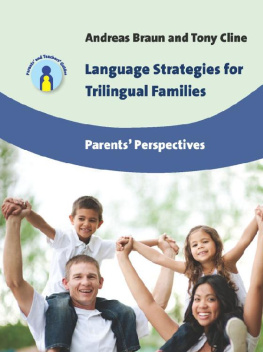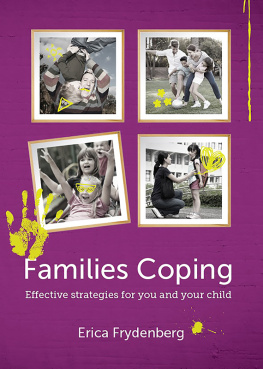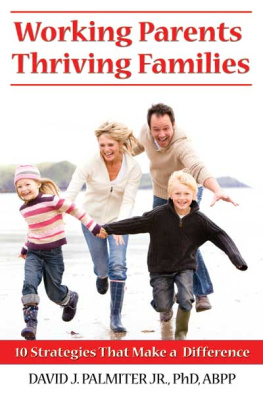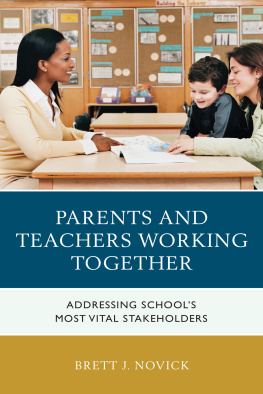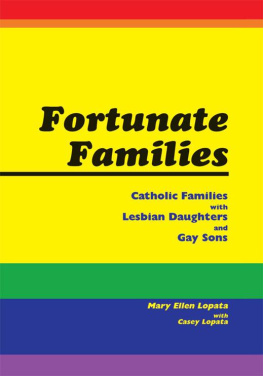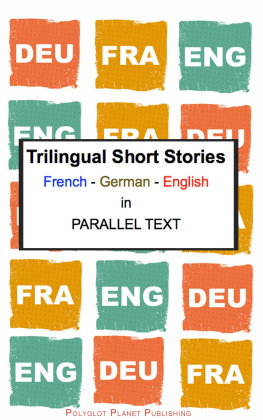PARENTS AND TEACHERS GUIDES
Series Editor: Colin Baker, Bangor University, UK
This series provides immediate advice and practical help on topics where parents and teachers frequently seek answers. Each book is written by one or more experts in a style that is highly readable, non-technical and comprehensive. No prior knowledge is assumed: a thorough understanding of a topic is promised after reading the appropriate book.
Full details of all the books in this series and of all our other publications can be found on http://www.multilingual-matters.com, or by writing to Multilingual Matters, St Nicholas House, 3134 High Street, Bristol BS1 2AW, UK.
Language Strategies for
Trilingual Families
Parents Perspectives
Andreas Braun and Tony Cline
MULTILINGUAL MATTERS
Bristol Buffalo Toronto
Library of Congress Cataloging in Publication Data
A catalog record for this book is available from the Library of Congress.
Braun, Andreas, (Linguist)
Language Strategies for Trilingual Families: Parents Perspectives / Andreas Braun and Tony Cline.
Parents and Teachers Guides: 17
Includes bibliographical references and index.
1. Multilingualism in children. 2. Multicultural education. 3. Education, Bilingual.
4. Multilingualism. I. Cline, Tony, author. II. Title.
P115.2.B73 2014
404.2085dc23 2013036370
British Library Cataloguing in Publication Data
A catalogue entry for this book is available from the British Library.
ISBN-13: 978-1-78309-115-7 (hbk)
ISBN-13: 978-1-78309-114-0 (pbk)
Multilingual Matters
UK: St Nicholas House, 31-34 High Street, Bristol BS1 2AW, UK.
USA: UTP, 2250 Military Road, Tonawanda, NY 14150, USA.
Canada: UTP, 5201 Dufferin Street, North York, Ontario M3H 5T8, Canada.
Copyright 2014 Andreas Braun and Tony Cline.
All rights reserved. No part of this work may be reproduced in any form or by any means without permission in writing from the publisher.
The policy of Multilingual Matters/Channel View Publications is to use papers that are natural, renewable and recyclable products, made from wood grown in sustainable forests. In the manufacturing process of our books, and to further support our policy, preference is given to printers that have FSC and PEFC Chain of Custody certification. The FSC and/or PEFC logos will appear on those books where full certification has been granted to the printer concerned.
Typeset by R. J. Footring Ltd, Derby
Printed and bound in Great Britain by CPI Antony Rowe
Contents
Figures and Tables
Figures
Tables
Acknowledgements
We would like to thank all the trilingual families who gave their precious time in research interviews, emails and web forums to provide us with a snapshot of their trilingual experience. Without their help this book would not have been possible.
1 Trilingualism And Multilingualism: An Overview
Introduction
In the world today, with increasing globalisation, many more people move, work, live and marry across borders. More children are born to parents who, between them, speak two or three languages or even more. The European Union alone has 24 official languages, and in fact the number of official languages is growing not just in Europe but also in Asia, Africa, North and South America and Australia. This has created new forms of trilingualism and, with them, new linguistic and cultural challenges for parents who have different nationalities and native languages. When children grow up in circumstances where the people around them can speak three or more languages, their parents face a question that they may not be prepared for: how can the children be helped to make the most of the complex heritage of languages and cultures that are available to them? Most of us learn our strategies for parenting from our own parents. But parents who have themselves grown up in monolingual or even bilingual settings will have no ready models for trilingual parenting.
This book aims to help parents and professionals to tackle the specific challenges faced by trilingual families with children. Books on trilingualism and multilingualism tend to focus on young children. They address questions such as when and how children acquire three languages and in what circumstances they use them. Here, in addition, we will consider the position of the parents in trilingual families. They have received less attention, but their role is crucial. Their practices and decisions will determine how far the children benefit from the opportunities they have for becoming trilingual. We will report how some parents have responded to the challenge, and hope that this will provide a stimulus for readers to reflect on the situations they face.
Much of what has been written about trilingualism has drawn on concepts that were developed in the study of bilingualism. But, while there are some overlaps, the ways in which languages and cultural traditions interact in trilingual families are more complex. Because there are more languages involved, language maintenance is more difficult, and the situation as a whole is more challenging. So there is a growing demand for information and advice on trilingualism (and multilingualism more generally) from parents who feel that what they read and are told about bilingualism does not fully answer the questions they have about the development of their own children. This led many volunteers to take part in the research study on which this book is mainly based, a project carried out by Andreas, who interviewed parents and some teenagers in 35 trilingual families in England and 35 families in Germany (see the next section for more information). Our ultimate goal is to provide an account that will help other parents in trilingual families to review their options and make informed choices. Many parents will want to pass on all the languages in their repertoire to their children, but some will not. We will discuss the reasons that are given for different choices and enable readers to evaluate the options for themselves. Thus the book addresses four broad questions:
How will parents competence in their home languages and the community language influence their decision to use those languages with their children?
What strategies do parents employ at home and outside in order to foster particular languages with their children?
How are parents choices influenced by their linguistic and cultural backgrounds?
What impact do the beliefs and attitudes of members of the extended family and other people have on trilingual families language practices?
Other issues that were frequently mentioned by parents and that we cover in the book include:
uncertainty about when to introduce a third language to a child;
being consistent about using particular languages at home and outside;
mixing languages;
developing a minority language;
difficulties at school;
childrens sense of identity.
Our Sources
The main source for the book was Andreass interviews conducted with parents in trilingual families living in England and Germany. Most participants could speak English, except some families in Germany where the interviews were conducted in German, which were translated by Andreas. The majority of these parents were in their 30s; their average age was about 38 years, although the youngest parent was 18 and the oldest 56. The parents had a total of 46 nationalities and spoke over 40 different native languages between them. The largest number had British or German nationality, but there were also significant numbers with Finnish, Russian, Italian, US-American and French nationality. While most came from a white European ethnic background, there was also a representation of a range of other ethnic minorities.
Next page
